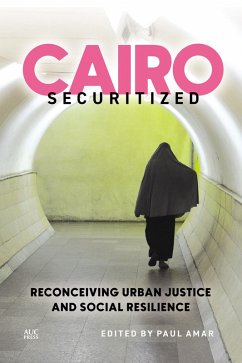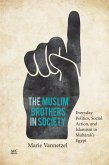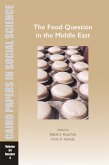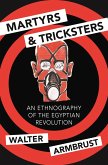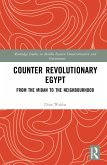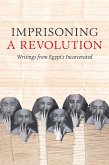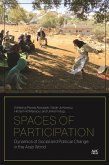A rich examination of the securitization of the everyday lives of the citizens of Cairo and how to build a more equitable urban order
Until the year 2000, Cairo had been a model megacity, relatively crime free, safe, and public facing. It featured a thriving public culture and vibrant street life. In recent decades, however, the Egyptian state has accelerated a wholesale dismantlement of public education and public sector jobs and reversed the modest land reforms of the Nasser era. As a result, the vast majority of Cairo's people have been forcibly deprived of their social rights, social goods, and educational capital.
Eschewing the traditional focus on top-down regime and state security, the contributors to this volume, who represent a wide array of academics, activists, artists, and journalists, explore how repressive policies affect the everyday lives of citizens. They show the ways in which urban security crises are politically fashioned and do not emanate from the urban social fabric on their own: city crime, violence, and fear are created by specific means of extraction, production, and control.
Another kind of city can live again. But how? By tackling a range of issues, including public health, transportation, labor safety, and housing and property distribution, Cairo Securitized unsettles simplistic binaries of thug and police, public versus private, and slum versus enclave, and proposes compelling new ways in which securitizing processes can be reversed, reengineered, and replaced with a participatory and equitable urban order.
Contributors:
Sara Soumaya Abed African Leadership Centre, Kings College London
Zeinab Abul-Magd Oberlin College, USA
Mohamed Ahmed Political Scientist and historian, Cairo Egypt
Rania Ahmed Independent Researcher, Cairo Egypt
Nicholas Simcik Arese University of Cambridge, UK
Ahmed Awadalla University of Strathclyde, Glasgow, UK
Ahmad Borham The American University in Cairo, Cairo Egypt
Miguel A. Fuentes Carreño University of California, Santa Barbara, USA
Roberta Duffield Scholar on urbanism, public space, Cairo Egypt
Momen El-Husseiny The American University in Cairo, Cairo Egypt
Mohamed Elmeshad SOAS, London UK
Ifdal Elsaket Netherlands-Flemish Institute, Cairo Egypt
Mohamed Elshahed Independent Writer and Curator, Mexico City
Amy Fallas University of California Santa Barbara, USA
Tina Guirguis University of California, Santa Barbara, USA
Elena Habersky The American University in Cairo, Cairo Egypt
Hanan Hammad Texas Christian University, USA
Hatem Hassan Impact Justice, Pittsburgh, USA
Amira Hetaba Federal Government of Lower Austria, Austria
Deena Khalil The American University in Cairo, Cairo Egypt
Omnia Khalil City University of New York, USA
Sabrina Lilleby University of Texas, Austin, USA
Paul Miranda Nonviolent Peaceforce, South Mosul, Iraq
Mostafa Mohie American University in Cairo, Cairo Egypt
Laura Monfleur University François-Rabelais, Tours, France
Aya Nassar Royal Holloway, University of London, UK
Nora Noralla human rights researcher, Berlin, Germany
Aly El Reggal Scuola Normale Superiore, Florence Italy
Afsaneh Rigot Harvard University, Cambridge USA
Yahia Saleh Malmö University, Sweden
Bassem al-Samragy political analyst at the International Criminal Court, The Hague, The Netherlands
Yahia Shawkat Technische Universität Berlin, Germany
Maïa Sinno Géographie Cités Lab, CNRS / Sorbonne University, Paris France
Mark Westmoreland Leiden University, The Netherlands
Until the year 2000, Cairo had been a model megacity, relatively crime free, safe, and public facing. It featured a thriving public culture and vibrant street life. In recent decades, however, the Egyptian state has accelerated a wholesale dismantlement of public education and public sector jobs and reversed the modest land reforms of the Nasser era. As a result, the vast majority of Cairo's people have been forcibly deprived of their social rights, social goods, and educational capital.
Eschewing the traditional focus on top-down regime and state security, the contributors to this volume, who represent a wide array of academics, activists, artists, and journalists, explore how repressive policies affect the everyday lives of citizens. They show the ways in which urban security crises are politically fashioned and do not emanate from the urban social fabric on their own: city crime, violence, and fear are created by specific means of extraction, production, and control.
Another kind of city can live again. But how? By tackling a range of issues, including public health, transportation, labor safety, and housing and property distribution, Cairo Securitized unsettles simplistic binaries of thug and police, public versus private, and slum versus enclave, and proposes compelling new ways in which securitizing processes can be reversed, reengineered, and replaced with a participatory and equitable urban order.
Contributors:
Sara Soumaya Abed African Leadership Centre, Kings College London
Zeinab Abul-Magd Oberlin College, USA
Mohamed Ahmed Political Scientist and historian, Cairo Egypt
Rania Ahmed Independent Researcher, Cairo Egypt
Nicholas Simcik Arese University of Cambridge, UK
Ahmed Awadalla University of Strathclyde, Glasgow, UK
Ahmad Borham The American University in Cairo, Cairo Egypt
Miguel A. Fuentes Carreño University of California, Santa Barbara, USA
Roberta Duffield Scholar on urbanism, public space, Cairo Egypt
Momen El-Husseiny The American University in Cairo, Cairo Egypt
Mohamed Elmeshad SOAS, London UK
Ifdal Elsaket Netherlands-Flemish Institute, Cairo Egypt
Mohamed Elshahed Independent Writer and Curator, Mexico City
Amy Fallas University of California Santa Barbara, USA
Tina Guirguis University of California, Santa Barbara, USA
Elena Habersky The American University in Cairo, Cairo Egypt
Hanan Hammad Texas Christian University, USA
Hatem Hassan Impact Justice, Pittsburgh, USA
Amira Hetaba Federal Government of Lower Austria, Austria
Deena Khalil The American University in Cairo, Cairo Egypt
Omnia Khalil City University of New York, USA
Sabrina Lilleby University of Texas, Austin, USA
Paul Miranda Nonviolent Peaceforce, South Mosul, Iraq
Mostafa Mohie American University in Cairo, Cairo Egypt
Laura Monfleur University François-Rabelais, Tours, France
Aya Nassar Royal Holloway, University of London, UK
Nora Noralla human rights researcher, Berlin, Germany
Aly El Reggal Scuola Normale Superiore, Florence Italy
Afsaneh Rigot Harvard University, Cambridge USA
Yahia Saleh Malmö University, Sweden
Bassem al-Samragy political analyst at the International Criminal Court, The Hague, The Netherlands
Yahia Shawkat Technische Universität Berlin, Germany
Maïa Sinno Géographie Cités Lab, CNRS / Sorbonne University, Paris France
Mark Westmoreland Leiden University, The Netherlands
Dieser Download kann aus rechtlichen Gründen nur mit Rechnungsadresse in A, D ausgeliefert werden.

